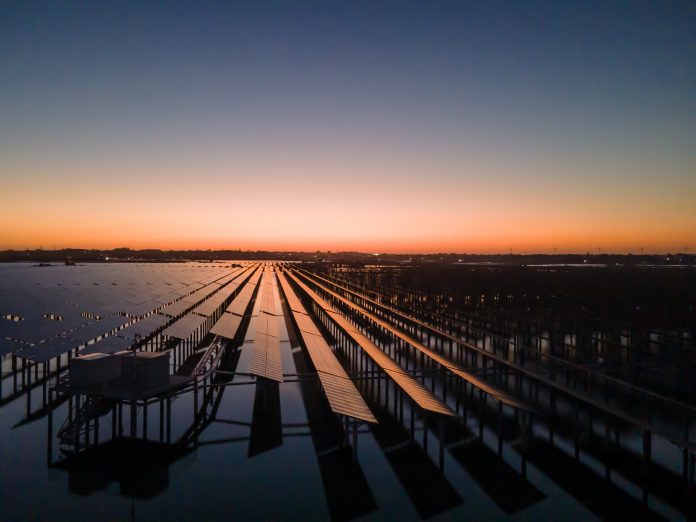Benoit Lascols, the general manager at accounting for externalities, looks at how value can be redefined to shape a consistent and practical sustainable economy
Two centuries of economics have explored and tested all social nuances, which can be found in the form of various and varied policies. This palette was the only response to a science, the economy, built on two dogmas, freedom and equality, constrained by unknown or ignored limits. Faced with the challenge of climate change and the crisis of biodiversity, shades disappear, and lines are becoming sharper. The physical limits impose themselves, making the choices binary and replacing the coloured policies, from communism to neoliberalism, by less democratic obligations. How do we translate these constraints into social models built on humanistic values? How do we develop a sustainable economy?
Should the economy be refunded, or should it evolve?
The economy explains the exchanges it evaluates based on a notion of value. Value is central and sets the framework within which individuals agree to exchange and collaborate through a tool – the market. Nevertheless, in a market, the consent of two individuals (a seller and a buyer) is not always the same as the consent of their neighbours, let alone that of future generations.
These problems of consensus, grouped together under the term externalities, have been the subject of numerous studies, all of which have one thing in common: they strive to integrate these externalities into the neoclassical model, whether in the form of a tax (A.C. Pigou), negotiations (R. Coase), or organizations (E. Ostrom). However, these theories have practical limits, making their implementation marginal in the face of the vast and complex problems we must face.
How can we evaluate natural and social resources without impacting the capacity of future generations?
The whole issue for an environmentally sustainable economy is: how to correctly evaluate natural and social resources without impacting the capacity of future generations.
A new value is needed: at least to give a measure to the sustainable economy and perhaps to raise awareness and change our social models. The value given by the markets is too far from a sustainable one to replace it. For example, the biodiversity’s value is the result of an evolutionary process and natural selection, balancing itself after hundreds of thousands of years, and does not appear in any balance sheet.
Another example, the value of the natural process producing oil in a few million years does not appear on any bill. We are at a bifurcation point in the economy with three possible choices. The first is a revolution and social upheaval: a value substitution (replacing market value with sustainable value) would be technically complex, economically risky, and socially explosive. On the other hand, doing nothing (the second option, “business as usual”), leads us to the collapse predicted by “The limit to growth”.

Before proposing a third alternative, two observations are necessary
We should be inspired be physical sciences and their timeless and conservative laws. The progress in physical sciences has been made through the invention of new metrics: energy is an example of a quantitative measure, it is often associated with entropy, which is a qualitative metrics. These serve as a basis for thermodynamics, the science of systems constrained by conservative values. It has many analogies with the environmental, sustainable economy which is developing: physical constraint on conservation law, entropic outlet. It also governs many complex systems and explains chemical or biological processes.
Secondly, this new measure must be free from the social heritage of the Enlightenment, equality and freedom, which by the nuances they bring, prevent any adoption on a large scale. The object of a new value is not to know how the wealth should be distributed, but to know what effort is necessary to maintain a potential of resources. This assertion, which goes against the grain of a social ecology, makes it possible to justify the need for a new measure, to separate politics and local issues from a global problem of resource exploitation in a globalized economy. It is necessary to circumscribe the problem before proposing a solution.
“The whole issue for an environmental, sustainable economy is: how to correctly evaluate natural and social resources without impacting the capacity of future generations?”
The solution thus consists in confronting a market value with the efforts required to maintain the resource, which is absent from the value defined by the marginalists. By extension, the notion of externality is thus rediscovered in a different form. The transition from the macroeconomy to the microeconomy is made naturally by consolidating the information in a new financial statement, the balance of externalities. This statement presents the debt, or contribution, of an activity to its environment. The accounting principles applied are the same; the only difference with respect to classical accounting is the transaction. An irreducible atomic unit, the transaction is no longer modeled by the good or service exchanged, but by the value required to maintain the resource potential to guarantee the same capacity to future generations.
What would the economy be like if it were completely circularised for natural and social resources?
The method requires simulating what the economy would be like if it were completely circularised for natural and social resources. It integrates a series of fictitious costs such as recycling, substitution by renewable resources, or the impact of tax evasion. Economic simulations should be taken with caution, but this one would allow, at a given moment and given the available information, to rank the investment options. They also highlight the necessary adjustments to be made to achieve a healthier economy. This tool has a theoretical basis in environmental economics and addresses the problem of ESG heterogeneity, which led to greenwashing.
AccountingforExternalities is working on a complete framework, from theory to practical application. For more information, you can contact us at the following address:
benoit.lascols@AccountingforExternalities.com

This work is licensed under Creative Commons Attribution-NonCommercial-NoDerivatives 4.0 International.











